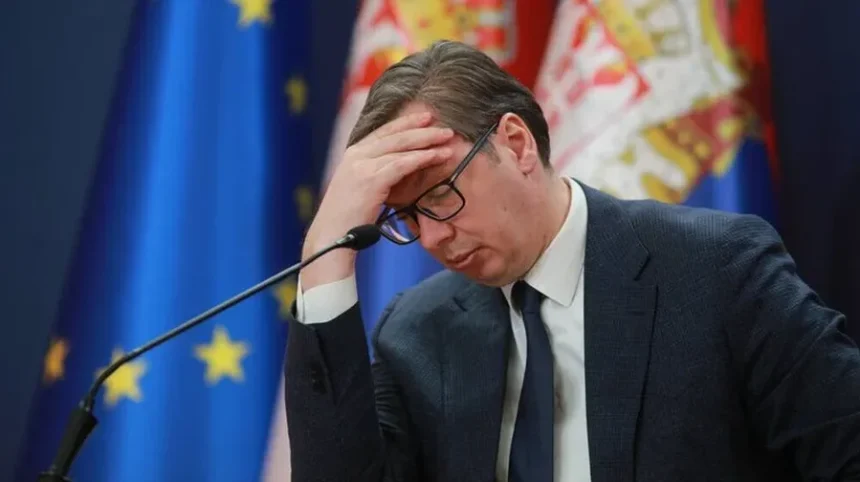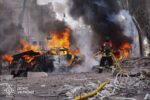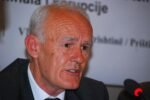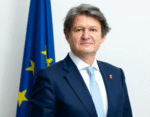After months of mass protests against his government, Serbian President Aleksandar Vučić organized a large counter-rally in Belgrade on Saturday, according to Deutsche Welle.
At least 55,000 people attended the event “Ne damo Srbiju” (“We Won’t Give Up Serbia”), according to estimates from the independent Public Gatherings Archive on X. Most participants arrived by bus from across Serbia, as well as from neighboring Kosovo and Bosnia and Herzegovina.
Opposition activists had called on citizens to boycott the rally and “use the weekend to rest.” Some attempted to block buses entering the city, throwing eggs at them before police intervened.
“This day has been long-awaited. I’m here to celebrate love and friendship,” participant Jadranka Milić told AFP. Isidora Filipović, a member of Vučić’s ruling Serbian Progressive Party (SNS), said the newly announced movement would unite all citizens, regardless of political affiliation.
In his speech, Vučić announced the launch of a new political movement aimed at bringing “fresh energy” to Serbia. He invited workers, farmers, and honest citizens to join, while criticizing “arrogant politicians” and accusing demonstrators of causing “great suffering” over the past five months. He reiterated claims that the protests are being supported from abroad.
Dodik and Orban Show Support
Milorad Dodik, the leader of Bosnia’s Republika Srpska entity—wanted by Bosnian prosecutors since March—spoke at the rally, calling Vučić “the only person capable of preserving a strong and powerful Serbia, both internally and externally.”
Hungarian Prime Minister Viktor Orban also backed Vučić via a video message, claiming that “foreign powers want to dictate to the Serbs how to live.”
Protests Continue Across Serbia
Meanwhile, thousands gathered again in Novi Pazar, around 300 kilometers south of Belgrade, to protest against the government.
Last week, dozens of students set off on a bicycle march to Strasbourg. They were welcomed with applause during a stop in Munich on Friday evening.
The wave of protests was triggered by the collapse of a railway station canopy in Novi Sad on November 1, which killed 16 people. Since then, hundreds of thousands across Serbia have taken to the streets, decrying corruption and poor governance, placing heavy pressure on Vučić’s administration.







